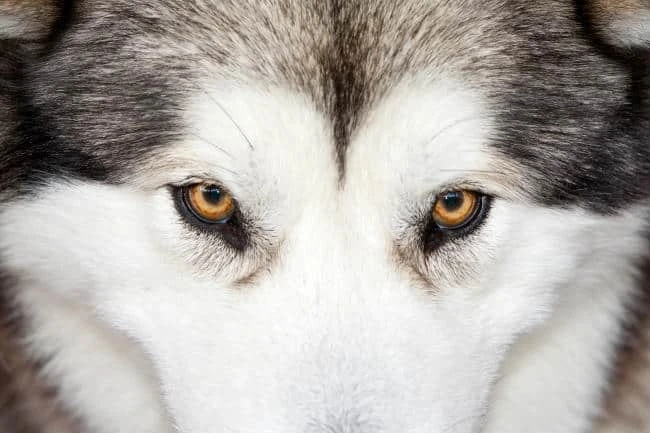Canine Rheumatoid Arthritis – A complete guide
A Complete Guide to Canine Rheumatoid Arthritis…

Canine Rheumatoid Arthritis develops when the immune system starts to mistake it’s own protein for a foreign protein causing the immune system to start producing antibodies to attack what it thinks is a foreign protein.
This will then cause the antibodies and protein to form what are called ‘immune complexes’. These will then attach themselves onto the joint which will cause the inflammation that is so prevalent with this disease.
A few facts about the condition….
- Canine Rheumatoid Arthritis is actually not that common and can occur in both females and males.
- Interestingly Rheumatoid Arthritis is also more common in smaller dogs (Toy breeds).
- The age of most dogs affected by this condition can vary but normally occurs in dogs aged between two and six years of age, however the condition can also affect dogs from the age of eight months up to eight years of age.
So how does the condition affect your dog…?
Due to the immune system mistaking it’s own protein for a foreign protein this will cause the antibodies to start attacking the Cartilage.
The immune system will then try to get rid of the immune complexes that have been formed – however this process will only end up causing more damage to the joints, slowly wearing away the Cartilage, Joint and the Bone itself. Consequently, the bone surface is worn away leading to the inflammation and symptoms we have highlighted below.
The symptoms of this condition can include…
- Your dog may appear in pain with swelling and inflammation around the Joints.
- You may notice that your pooch experiences mood swings and become disinterested in playing or going for a walk.
- Decrease energy levels can also be a symptom of Rheumatism, (a dog that was previously active may become lethargic and disinterested).
- Your pooch may sleep more often and seem depressed.
- Due to the lack of exercise and lethargy your dog may start to get fat or at least put some weight on.
- Watch for signs that your dog is not using a specific limb (this might be because the Arthritis is affecting that specific limb).
- Watch for signals that may indicate your dog has developed the condition – your pooch may refuse to climb the stairs, have problems standing, not jump up (when he used to) and not keen or hesitant when it comes to using the affected limbs.
- Lameness may occur very suddenly or over a period of time
- Enlarged Lymph Nodes is another symptom of the condition also referred to as (Lymphadenopathy).
Causes of Rheumatism in Dogs…
The causes of of the condition are not actually known however experts have discovered that some dogs develop the disease after developing the Distemper Virus present in their joint tissue. Other causes of the condition can include genetic factors, Lyme Disease, ParvoVirus and other diseases related to the immune system.

How is Rheumatism Diagnosed…?
A Vet will normally start the diagnostic process by performing a thorough physical examination and will also look at the medical history to determine if this is an ongoing problem or whether there have been any previous symptoms that went unrecognized.
Your Vet may undertake an X-ray to determine if the disease is present and the joints that have been affected.
To determine whether the disease has affected specific joints the Vet will look at the X-ray to see if there are any abnormalities or deformities to the bone joints. Abnormalities can include growths protruding from the bone including ‘Spurs’.
The Vet may also examine the Synovial fluid – this fluid is present in the joint cavity to reduce any friction between the Articular Cartilage. The examination of the fluid will also determine whether your dog’s condition is an Immune Mediated Arthritis rather than Osteoarthritis or an Arthritis caused by Infection.
How is Canine Rheumatoid Arthritis Treated…
- Unfortunately there is no cure for this condition but there are treatments that can slow down it’s progress and relieve some of the pain.
- In severe cases the Vet may undertake surgery but this is rare.
- Just because your dog has the condition does not mean that exercise should stop, just be sensible (when we say exercise we mean low impact exercise like swimming and walks should be a little shorter.
- The Vet may prescribe pain relieving and anti-inflammatory relieving medication including (buffered Aspirin), Corticosteroids and Immunosuppressive medication.
- The Vet may prescribe Glucosamine and Chondroitin Sulfate.
- In some cases the Vet may inject pain relieving medication directly into the affected joints. (Reference: Llewellyn, G. 1998. Homeopathic Remedies for Dogs).
Homeopathic Remedies for Rheumatism in Dogs…
- Rhus Toxicodenron 6c – this is an excellent remedy for dogs that develop pain during wet weather or when the air is particularly damp (a common cause of increased joint pain).
- Byronia Alba 6c – is a useful homeopathic remedy for pain (that develops when the pain becomes worst due to exercise).
- Arnica Montana 30c – if the pain in the joints is due to a strain or injury then this is a useful remedy.
- Apis Mellifica 6c – if the affected joint is swollen or becomes worst due to heat then you could try this remedy.
- Calcarea Fluorica 30c – this is the best remedy for joints that are swollen also causing swelling to the bone. If the joints are noisy (making cracking sounds) then this can also be treated with Calcarea Fluorica 30c.
- Caulophyllum 30c – is useful for pain in the knees, ankles and toes.
- Causticum 30c – if the joints have become deformed causing severe pain then this can be beneficial remedy. It can also be used for muscle weakness.
- Hekla Lava 6c – can be used for treating the lumps on the joints often caused by Arthritis.
- Hepar Sulphuris Calcareum 30c – is great for treating infected and painful joints.
Take a look at the video on the left for some of the common symptoms and effective treatments.
Rheumatoid Arthritis in a Nutshell!
“Rheumatoid Arthritis is characterized by the inflammation of one or more Joints”. Take a look at the video below to see the symptoms of the condition.
With this condition it is important that you make your dog’s life as comfortable as possible – make sure food and water bowls are elevated so they don’t cause excessive strain on the joints, keep your dog warm, use a heated blanket in your dog’s bed, put a doggie jumper on your pooch in cold weather and use a ramp to make difficult steps more easy.
As you dog get’s older…
As dogs get older and more sedentary they may need more motivation to go for a walk – it’s important to mention that a mature dog still needs regular exercise. The reason for this is that exercise is more likely to keep your dog supple and more agile.
However, if your dog does have Rheumatism and combining this with old age your pooch is more likely to get tired and may experience pain in the joints Consequently, you need to take this into consideration and speak to your vet to see if a walk is more likely to cause damage as opposed to being beneficial.
Some home remedies for Rheumatism in dogs…to make your pooches life a little easier…
- A dog that is overweight is more likely to put added stress on the joints (which can lead to increase joint pain).
- If your dog does have Rheumatism or Osteoarthritis and is overweight your should consider putting your pooch on a diet. Not only will this help your dog lose weight buy it will be beneficial for your dog’s overall general health.
- Your Vet may also prescribe Vitamin Supplements including Omega-3 Fatty Acids to alleviate the symptoms of the condition.
- You should also make sure that your dog’s sleeping area is nice and warm (and comfortable as a hard sleeping surface is not a good idea for a dog with Arthritis). You could also purchase a heated sleeping bed (this is always good for painful joints).
- Try filling up a hot water bottle or soak a towel in warm water and wrap it around the affected area (for about 15 minutes). You can do this in the morning and before your dog goes to bed at night.
- You could also gently massage the affected area or even treat your pooch to some Acupuncture as this can be really beneficial for Rheumatism in dogs.
References:
Ackerman, L. Owners Guide to Dog Health. 1995.
Mash, H. 2011. The Holistic Dog: A complete guide to natural health care. The Crowood Press.
Llewellyn, G. 1998. Homeopathic Remedies for Dogs.
Thornton K and Eldredge, D, 2005. The Everything Dog Health Book.
The American Animal Hospital Association Encyclopedia of Dog Health and Care, 1994. Quill. New York.
The Doctors Book of Home Remedies for Dogs and Cats. 1996. Rodale Press Inc, Emmaus, Pennsylvania.
Useful Links:
Take a look at some useful links below for more information and treatment options for canine Rheumatoid Arthritis.





